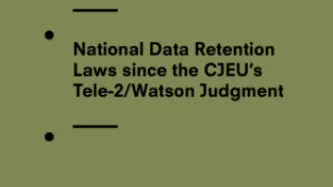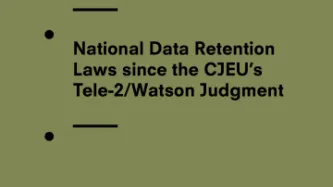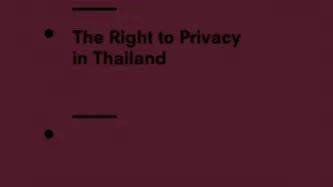Search
Content type: Report
… 23rd October 2017 This report sheds light on the current state of affairs in data retention regulation across the EU post the Tele-2/Watson judgment. Privacy International has consulted with digital rights NGOs … survey of data retention regimes in the EU to date, Privacy International would be grateful to receive any …
Content type: Press release
… Press release Post date 6th September 2017 Key points Privacy International surveyed 21 EU member states' legislation on data retention and examined their … with fundamental human rights standards 0 out of the 21 States examined by PI are currently in compliance with these …
Content type: Advocacy
… 1st September 2017 This report sheds light on the current state of affairs in data retention regulation across the EU post the Tele-2/Watson judgment. Privacy International has consulted with digital rights NGOs … survey of data retention regimes in the EU to date, Privacy International would be grateful to receive any …
Content type: Advocacy
… Advocacy Post date 3rd April 2017 Privacy International's submission on the right to privacy in Thailand, Human Rights Committee, 119th Session. … inadequate, unclear as to the powers, scope and capacity of state surveillance activities and thus it falls short of the …
Content type: News & Analysis
… “It is what you might call ‘acceptable deaths,’” he states about the misuse of communications surveillance … NIS is the sacred cow of Kenya’s increasingly securitised state. It is the main agency conducting signals intelligence … real abuses in the effort to minimise those threats. Today, Privacy International publishes a new investigation – ' …



